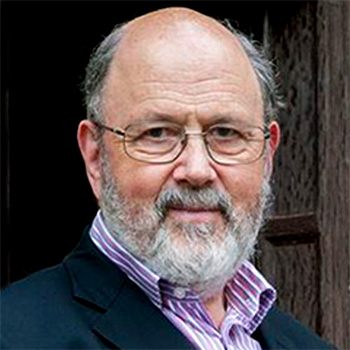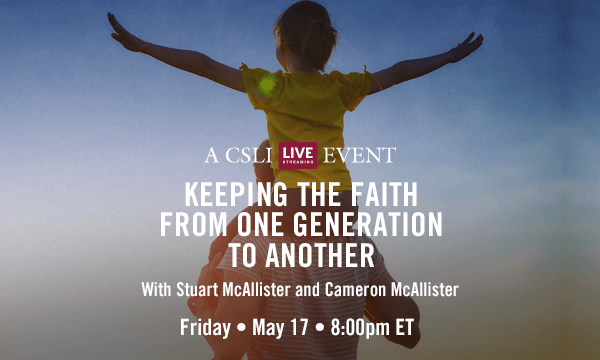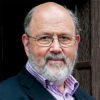Back to series



An Interview With: REV. DR. N.T. Wright
Click here to open Print- Friendly PDF
Dr. Lindsley: How did you come to faith in Christ?
Dr. Wright: I was brought up in a Christian home of a middle-Anglican variety, was baptized as a child among praying relatives, and went to a school where there were daily prayers etc. It wasn’t until my teens that I realized that most adults in the UK didn’t in fact believe in God in any serious way. I had various ‘jumps’ forward in my own Christian experience, each one making real for me in new ways things that had been latent before. The first of these that I remember was when I was about seven; it was around that time that I began to realize I was called to ordained ministry. Another of the things I didn’t know was that that was unusual! In my early teens I started going to boys’ camps run by Scripture Union, at which we had excellent outdoor holidays with strong biblical teaching morning and evening. The combination of a steady church background with exciting biblical study has, I guess, set me up for life.
Dr. Lindsley: What are the top three needs of the Church today?
Dr. Wright: Forgive me saying that’s a very American style of question! But, to run with the genre, I suppose I would say: 1. a better grasp of the biblical and historical roots of the faith; 2. a better understanding of the complex world we now live in; and 3. courage, energy and vision to relate the first to the second in the power of the Holy Spirit. Of course, each of these begs all sorts of questions as to what that grasp, and that understanding, might be, and what the spirit might be leading us to do in our own day. But that’s the framework I’d go with. Of course, a perfectly good answer might just as well have read: 1. prayer; 2. prayer; 3. prayer.
Dr. Lindsley: Which is the most important book you have written?
Dr. Wright: That’s up to the critics, and to history. But my guess at the moment has to be Jesus and the Victory of God. That, with its predecessor, The New Testament and the People of God, which I really see as part of the same ‘book’, now a series, is taking the major step I think we need to take to address the first of my answers in the previous question.
I am very much aware as a theologian that in fact the most important ‘book’ I have written, and am writing, is the ‘book’ which consists of my own life. At the moment there are quite a lot of misprints and errors in this, and I’m keen to put them straight.
Dr. Lindsley: What are the top five most influential books in your life other than the Bible?
Dr. Wright: I assume that, with the Bible, I should rule out the books I most frequently pull off the shelf, and always enjoy using—the great dictionaries and lexicons (I love words), the great Bible dictionaries and reference books like the Oxford Dictionary of the Christian Church and the Oxford Classical Dictionary, now both in magnificent third editions.
This is a hard one, because I read as much as I possibly can, and quite different stuff. But as I look back, the works of C. S. Lewis (no, this isn’t just because of this magazine!) were hugely influential on me in my teens and early twenties. Many times, in a conversation, or reading a newspaper article, one of Lewis’s sharp little insights, not least from the Narnia books, would return and keep me clearheaded.
I was much influenced in mid-teens by Isabel Kuhn’s classic By Searching, but I haven’t re-read it for many years now.
The novels of Chaim Potok opened up for me the world of contemporary Judaism just as I was getting to know, as a historian, the world of first century Judaism. I still find My Name is Asher Lev extraordinarily powerful, not least because of the pilgrimage of the hero through the misunderstanding of his own community—something most theologians know from time to time.
I love poetry and usually have some in my bag when I travel. Often this is T. S. Eliot’s Four Quartets, which I love but don’t really understand. But my favourite for some years now has been the Irish poet Michael O’Siadhail. His Hail! Madam Jazz, a salute to poetry itself (herself) is my favourite collection.
In terms of scholarly works, I have been influenced particularly by my own teacher in his last great work: G. B. Caird, The Language and Imagery of the Bible, now in a new edition for which I wrote a foreword. But two great books ask to be mentioned as well: the commentaries on Romans by two completely different writers, C. E. B. Cranfield and Ernst Käsemann. I don’t agree with either of them, but they taught me what the issues were and how to think historically and theologically about them.
Dr. Lindsley: How do you shape your devotional life?
Dr. Wright: My favoured pattern at the moment is to sit down very early in the morning in my study armchair with a pot of tea and three books: the Hebrew Old Testament, from which I read a Psalm, the Greek Old Testament (the Septuagint) from which I read a chapter, and the Greek New Testament, from which I read a paragraph (more or less). I try to be alive to what God may be saying to me, and perhaps through me, at every level, particularly the personal. But equally important is that I then, a bit later, attend Mattins in the Abbey (a said service, mostly consisting of Bible readings interspersed with congregational responses also taken from the Bible, and ending with prayers for the world, the church, and ourselves). Frequently I will also attend, and sometimes preside at, the Eucharist. Then in the evening, before supper, I will attend Choral Evensong, and allow the work and tensions of the day to be bathed in glorious music and shared prayer. Late in the evening I’m too tired for sustained devotions, but a few moments of prayer will often round the day off.
I should say also that, when I’m writing, the line between thinking something through—a topic, a biblical passage, a chapter in a book I’m writing —and praying it through is very fine, and I’m honestly not clear when the one becomes the other.
Dr. Lindsley: How have you been so productive in writing?
Dr. Wright: The need to support a large family (four hungry, and now young adult, children) has had a lot to do with it. I have been blessed (a) with what some people call the gift of the gab—I can talk quickly on most subjects
I know something about, and on some I don’t! and (b) with the gift of physical stamina. I can sit at the desk, and work at the computer, for long hours on end. I think something happened when I turned 40 (thirteen years ago now). I suddenly realised that I didn’t have to write in the stodgy, boring way that much scholarship has adopted. If the argument was sound, the evidence fully presented, and the conclusions clear, it was real scholarship even if I wrote the way I wanted. From then on I have just loved writing. It’s physically demanding but it’s usually exhilarating.
One final word, and this is in homage to your “patron saint.” Before I ever started serious writing, I was impressed by what Lewis said somewhere, that the best way to develop your writing style is first to know exactly what it is you want to say, and second to be sure you say exactly that. I keep that as an invisible motto over my desk. Whether I live up to it will be for others to judge.

N.T. Wright
TheologianN.T. Wright is an English New Testament scholar, Pauline theologian and Anglican bishop. He was the Bishop of Durham from 2003 to 2010. Research Professor of New Testament and Early Christianity at St Mary's College in the University of St Andrews in Scotland until 2019, he became a senior research fellow at Wycliffe Hall at the University of Oxford. His publications include The Day the Revolution Began: Reconsidering the Meaning of Jesus's Crucifixion (2016), Simply Christian: Why Christianity Makes Sense (2010), Justification: God's Plan & Paul's Vision (2009), The Resurrection of the Son of God (2003), the five-part Christian Origins and the Questions of God series, and a series of popular commentaries on the books of the New Testament.

 COPYRIGHT: This publication is published by C.S. Lewis Institute; 8001 Braddock Road, Suite 301; Springfield, VA 22151. Portions of the publication may be reproduced for noncommercial, local church or ministry use without prior permission. Electronic copies of the PDF files may be duplicated and transmitted via e-mail for personal and church use. Articles may not be modified without prior written permission of the Institute. For questions, contact the Institute: 703.914.5602 or email us.
COPYRIGHT: This publication is published by C.S. Lewis Institute; 8001 Braddock Road, Suite 301; Springfield, VA 22151. Portions of the publication may be reproduced for noncommercial, local church or ministry use without prior permission. Electronic copies of the PDF files may be duplicated and transmitted via e-mail for personal and church use. Articles may not be modified without prior written permission of the Institute. For questions, contact the Institute: 703.914.5602 or email us.
-
Recent Podcasts
A Welcome Change in Apologetics
by Randy Newman, Aimee Riegert on April 19, 2024We’re burdened for our friends who don’t know...Read More
-
Questions That Matter Podcast – Samuel James and Digital Liturgies
by Samuel James, Randy Newman on April 19, 2024
-
The Side B Stories – Dr. James Tour’s story
by Jana Harmon, James Tour on April 12, 2024
-
Recent Publications
Isn’t Morality Relative?
by Christopher L. Reese on April 1, 2024It is widely accepted in the Western world...Read More
-
Do Muslims and Christians Worship the Same God?
by Andy Bannister on March 1, 2024
-
Artificial Intelligence and Its Impacts on Humanity
by John Lennox on February 13, 2024
0
All Booked
0.00
All Booked
0.00
All Booked
22140
GLOBAL EVENT: Keeping the Faith From One Generation To Another with Stuart McAllister and Cameron McAllister, 8:00PM ET
https://www.cslewisinstitute.org/?event=global-event-keeping-the-faith-from-one-generation-to-another-with-stuart-mcallister-and-cameron-mcallister-800pm-et&event_date=2024-05-17®=1
https://www.paypal.com/cgi-bin/webscr
2024-05-17

Next coming event
Days
Hours
Minutes
Seconds
GLOBAL EVENT: Keeping the Faith From One Generation To Another with Stuart McAllister and Cameron McAllister, 8:00PM ET
On May 17, 2024 at 8:00 pmSpeakers

N.T. Wright
Theologian
Team Members

N.T. Wright
TheologianN.T. Wright is an English New Testament scholar, Pauline theologian and Anglican bishop. He was the Bishop of Durham from 2003 to 2010. Research Professor of New Testament and Early Christianity at St Mary's College in the University of St Andrews in Scotland until 2019, he became a senior research fellow at Wycliffe Hall at the University of Oxford. His publications include The Day the Revolution Began: Reconsidering the Meaning of Jesus's Crucifixion (2016), Simply Christian: Why Christianity Makes Sense (2010), Justification: God's Plan & Paul's Vision (2009), The Resurrection of the Son of God (2003), the five-part Christian Origins and the Questions of God series, and a series of popular commentaries on the books of the New Testament.





